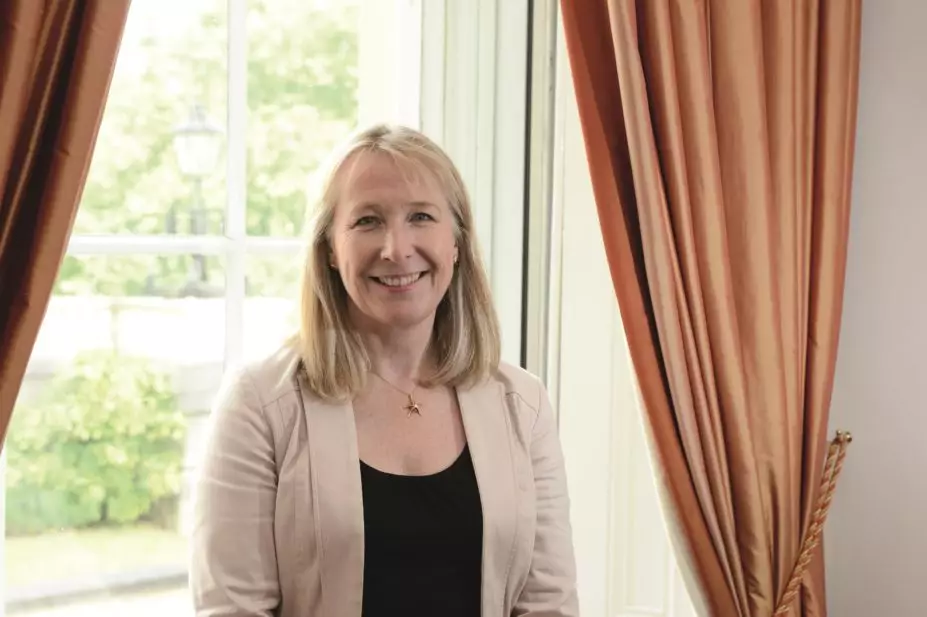
Simon Wright / The Pharmaceutical Journal
“You might walk into a room of grey hairs and no hairs and feel uncomfortable but I know that people will remember me then… because I’m the only woman in the room.”
These were the words spoken by Claire Thompson while chairing a panel at the Women in Healthcare Leadership Symposium on 20 October 2015. Thompson is the director of two successful scientific businesses based in Stevenage, Hertfordshire — NanoScientium and Agility Health Tech — and yet this comment highlights that women in science leadership roles are still in the minority.
The symposium, held for the first time at the Royal Pharmaceutical Society’s (RPS) new headquarters in Wapping, London, aimed to inspire women working in science to set their sights on higher roles, while also laying bare the challenges experienced by women working in male-dominated environments.
In 2014, women accounted for 37% of all board positions in the NHS: 37% sounds quite good, until you take into account that women make up 77% of the NHS workforce.
“Why are so few [women] reaching senior positions?” asked Helen Gordon, chief executive officer (CEO) of the RPS, in her opening address. “We have a large amount of women entering pharmacy but fewer and fewer are reaching senior positions.”
Gordon presented her ‘seven superstar strategies’ at the symposium, which centred on sponsorship, mentorship and drawing attention to the benefits of diversity. “We so often hear that the ‘problem’ with pharmacy is that we’re all so diverse. But diversity adds value to an organisation, culturally and to the bottom line,” she said.
The ‘glass ceiling’
The term ‘glass ceiling’ has been a common, if not overused, metaphor in gender diversity debates since the 1980s. But the world of work is now a very different place. The concept of women being held back in this way now seems outdated. Instead, there are a number of factors that prevent or delay our journey to leadership positions.

Source: BBSRC
Jackie Hunter, CEO of the Biotechnology and Biological Sciences Research Council, explained how dealing with sexism in the workplace can make you a better leader
In her keynote address at the event, Jackie Hunter, CEO of the Biotechnology and Biological Sciences Research Council, gave a compelling account of her journey to chief executive, emphasising that “sexism does still exist”.
According to Hunter, just 26% of all professors in the UK are women. She described a study where identical CVs were sent out to organisations, half with the name ‘Jennifer’, half with the name ‘John’. The results showed that the male CV was consistently ranked higher.
But Hunter also pointed out that women are notoriously bad at self-promotion. She encouraged the room to adopt different strategies to cope in male-dominated boardrooms, such as having the confidence to challenge interruptions in meetings and avoiding apologetic language when sharing opinion.
“Women need to have the confidence to go for these roles,” said Jo Craig, site head of GSK’s (GlaxoSmithKline) research and development site in Ware as well as lead for a global group. “We need to support women on so we can see the ladder of where they might reach.”
Craig went on to explain how GSK is currently setting targets for the number of women on its boards. “It’s not just about percentages,” she said. “It’s because of the value of different ways of thinking.”
But despite her accounts of sexism, Hunter also said how dealing with it in the workplace can make you a better leader. “Dealing with sexism is basically dealing with conflict, and if you can deal with that you can deal with bullying, or poor performance.”
A diverse workplace
The only man in the room during the event, Tommy Dolan, vice president leading the global drug product design and supply function in PTx Pharmaceutical Sciences as well as Pfizer Sandwich site head, said there needed to be more diversity across groups of people who are going for jobs. “[Men] do tend to put themselves forward more [but] capability goes way beyond gender,” he said.
GSK’s Craig shared a personal lesson learnt during the construction of a new team of chemical engineers. “It’s important not to feel threatened by having bright people on your team,” she explained.

Source: Reena Barai
Reena Barai, a community pharmacist and tutor at the Centre for Pharmacy Postgraduate Education (CCPE), emphasised that diversity in the workplace has to be ”meritocratic”
“Diversity has to be meritocratic,” continued Reena Barai, a community pharmacist and tutor at the Centre for Pharmacy Postgraduate Education (CCPE), which offers students professional development and support as part of the Manchester Pharmacy School within the University of Manchester’s faculty of medical and human sciences.
Barai, who won last year’s RPS ‘I Love My Pharmacist’ competition, explained how she had set up a supportive sponsorship network for Asian female independent contractors. “It was the idea of creating a network to sponsor each other and create some leadership within our own community so we can see more faces. It takes all of us to own that sponsorship and make a fuss when it’s not there,” she said.
“Innovation is driven by diversity,” said Yvonne Perrie, head of pharmacy at Birmingham’s Aston University, repeating the university tagline. “It should be the best person for the job and [the candidates] need to know there has been no conscious or unconscious bias leading to that decision.”
Work-life balance
For people of any gender, work has to be juggled with bringing up a family, but does having children mean giving up on a work-life balance?
Craig is a mother of three as well as a successful professional. She reflected on managing the juggling act and how flexible working has become crucial for people wanting to achieve that balance. “With flexible working it’s much easier. It opens the opportunity to work more flexibly and be able to apply for those [higher] roles.”
But Barai mentioned that women often “feel guilty” about wanting to have a work-life balance and that they shouldn’t have to. “We need to tackle the guilt we feel all the time. We’ve really got to sort that out as women,” she said.
What now?
Organisations need to show that they value women at senior levels and work on eliminating unconscious bias. Boardroom quotas, sponsorship networks, mentorship programmes and focused development pathways were all suggested at the symposium as ways to help women embark and succeed on their leadership journeys.
But beyond all the jargon, through events like this women need to communicate, support each other, share advice and be role models for each other. As Claire Thompson concluded, “you can’t be what you can’t see. We need more ‘sheros’ to show other women that they can be that and they can achieve that”.



